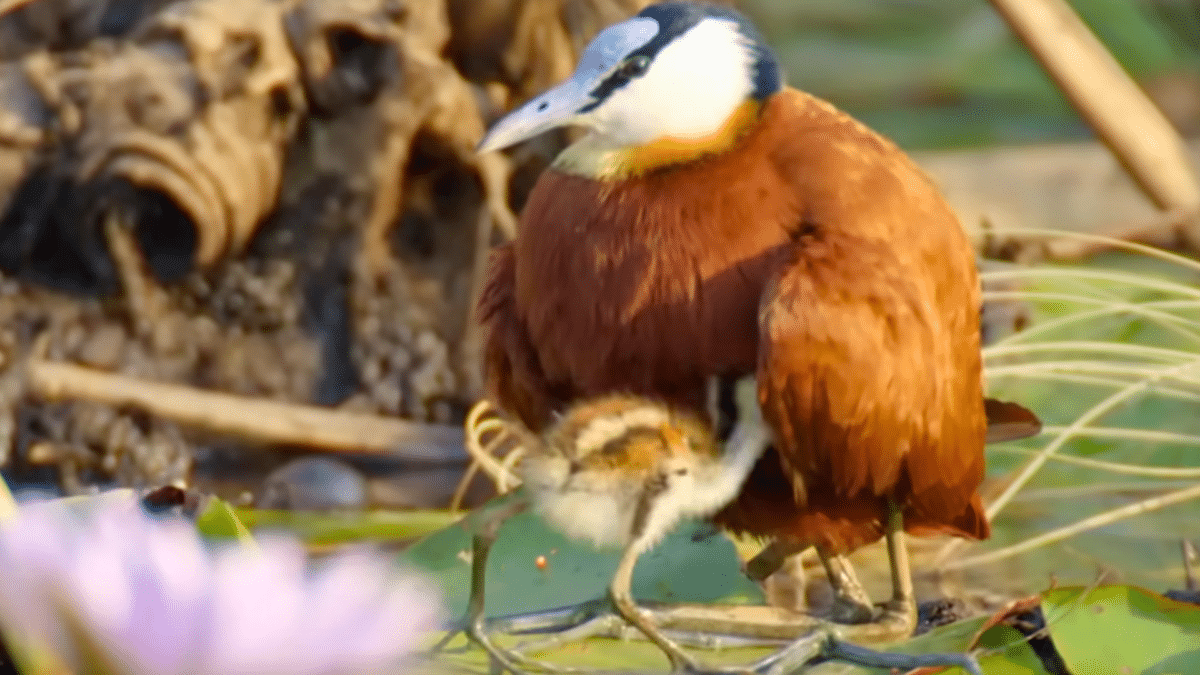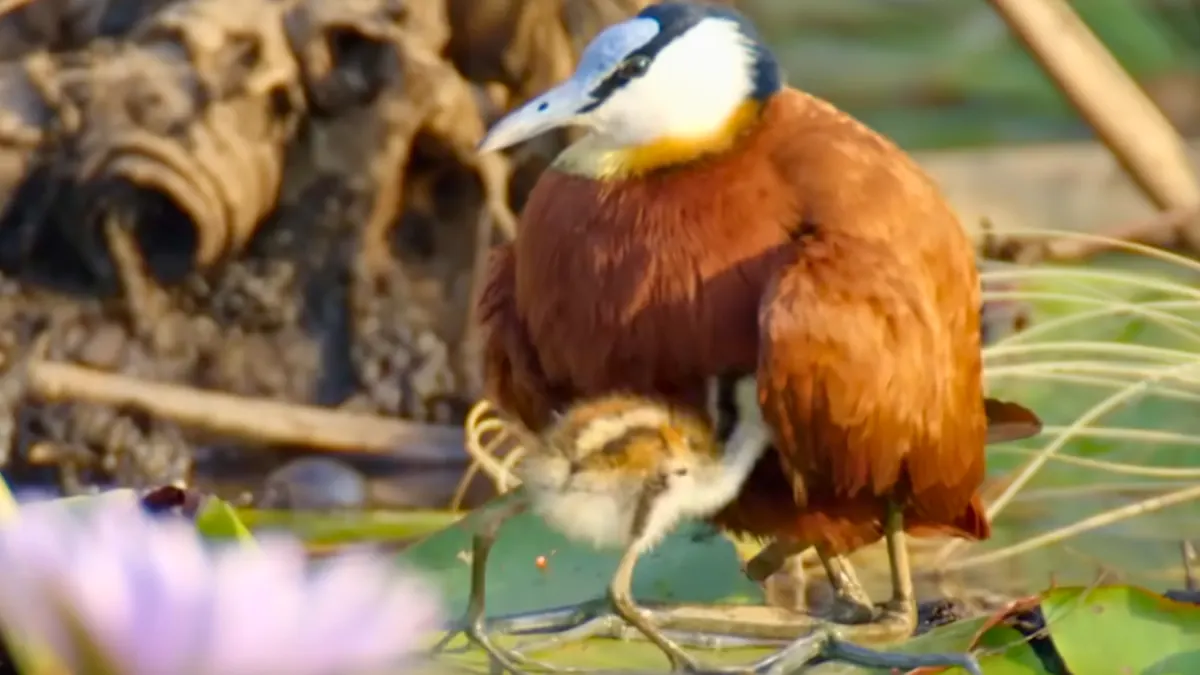In the vibrant wetlands of Africa, where the delicate dance of life unfolds on floating lilies, a tiny yet mighty drama plays out. Enter the African jacana, a fascinating bird species known for its oversized feet and remarkable parenting dynamics. In a heart-stopping encounter, a Jacana father becomes the hero as he rescues his chicks from the lurking jaws of a cunning crocodile. Let’s delve into the riveting world of jacanas and witness the extraordinary measures these feathered parents take to ensure the survival of their offspring.
The Jacana’s Journey

From the moment they hatch, day-old African jacanas embark on an adventure to find food. Despite their oversized feet, which they will grow into one day, these birds are not built for running or flying. Instead, their expertise lies in navigating the water on floating lilies. Weighing just a few ounces, they skillfully hop from lily to lily, blissfully unaware of the dangers lurking beneath the water’s surface. The absence of a motherly figure leaves the vulnerable chicks solely in the care of their fathers.
The Crocodile Encounter
As the twin chicks explore their watery surroundings, danger strikes in the form of a stealthy crocodile. The vigilant father, with his own flotation challenges, spots the impending threat and springs into action. Emitting a coded chirp, he signals his chicks to gather around him. The urgency isn’t just about hiding from the crocodile; it’s about strategically moving them to safety. With one chick tucked under each wing, the brave African Jacana father embarks on a perilous journey to lead his offspring away from the impending danger.
Survival in the Shadows
In the dark recesses of the marsh, the father faces the challenge of keeping his chirping chicks quiet. Here, survival hinges on awareness, and those who thrive are the ones attuned to the sinister realities hidden beneath the apparent beauty of their habitat. It’s a delicate balance between staying hidden and navigating the labyrinth of floating lilies.
Crocodile Diet
To fully appreciate the bravery of the Jacana father, let’s take a moment to understand the crocodile’s diet. Crocodiles are apex predators with a voracious appetite. Their diet includes fish, birds, and mammals, making the vulnerable jacana chicks a tempting and easy target. The Jacana father’s quick thinking and protective instincts become even more commendable in the face of such a formidable predator.
African Jacana Social Bonds
Beyond their daring escapes, African jacanas showcase intriguing social dynamics. Unlike many bird species, jacana mothers play no role in raising their chicks. Instead, the males take on the sole responsibility of childcare. This unique arrangement strengthens the bond between father and offspring. Jacanas form monogamous pairs, with fathers actively participating in incubating eggs and safeguarding the chicks. This cooperative parenting approach reflects a profound social structure that contributes to the survival of their species in the challenging wetland environment.
Wrapping Up on a Jacana Dad Rescues His Chicks From A Crocodile
In the enchanting realm of African wetlands, the jacana‘s tale unfolds – a narrative of survival, bravery, and the extraordinary lengths a father will go to protect his young. As we peer into the watery landscape where danger lurks beneath the lilies, we gain a newfound appreciation for the delicate balance between life and peril in the wild. The African Jacana’s story serves as a testament to the resilience of nature’s creations and the unwavering commitment of a father in the face of adversity.
Thank you for following along with this article –
Next up in the animal kingdom:
- Elephant Attacks Crocodile Surprising The Safari Guests
- Crocodile Snatches Electric Eel And Gets A Shocking Surprise
Join our Forum for free today!

- Surprised By A Snake In My Toilet In Bali - July 24, 2024
- Discover the Profound Spiritual Meaning of the Brown Bear - July 24, 2024
- Unexpected Snake Slithers Across My Windshield On Arizona Highway - July 23, 2024


